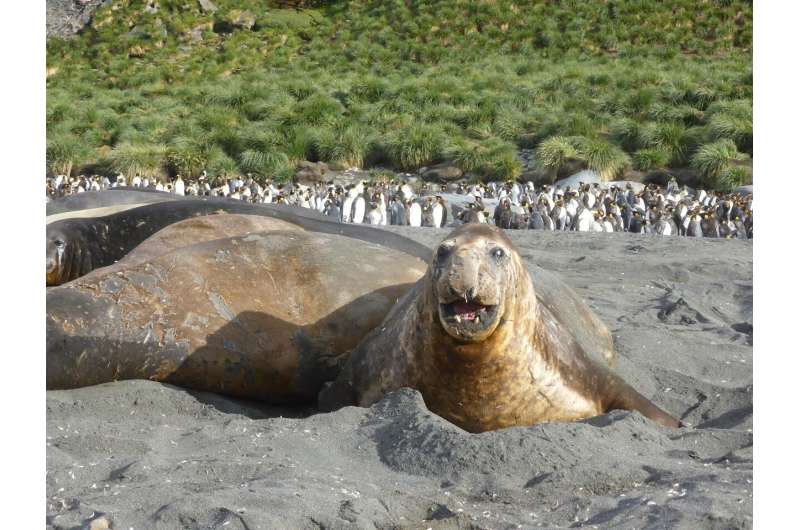This article has been reviewed according to Science X's editorial process and policies. Editors have highlighted the following attributes while ensuring the content's credibility:
fact-checked
trusted source
proofread
Deep diving with elephant seals offers unique insights into human health

Elite free divers can hold their breath for 10 minutes after years of rigorous, sometimes dangerous training. Northern elephant seals practically live underwater, taking up to 90 minutes between breaths.
A new study from UBC Okanagan's Center for Heart, Lung and Vascular Health, published in the American Journal of Physiology-Regulatory, Integrative and Comparative Physiology, examines how the animals eclipse their human counterparts so quickly, with an eye on improving human health.
"Our study highlights key physiological traits in seals that could inspire new information and treatments for conditions like chronic obstructive pulmonary disease (COPD) and acute pulmonary edema," says Courtney Brown, the doctoral student who led the research.
"These conditions involve similar blood gas imbalances, and understanding how seals manage these can guide the development of therapeutic strategies."
The research reveals significant differences in human–seal responses to apnea, or holding your breath.
Brown and her interdisciplinary team measured the blood responses of these two adept divers. The findings show that northern elephant seals exhibit superior pH buffering and higher carboxyhemoglobin (COHb) levels—the amount of hemoglobin with carbon monoxide bound to it—an adaptation that enables them to dive for extended periods without the adverse effects experienced by humans.
"By understanding how seals keep their blood stable during long dives, we might find new ways to help patients with respiratory conditions and improve their quality of life," Brown says.
She analyzed arterial blood samples from 14 elite free divers and three juvenile northern elephant seals.
Despite similar increases in partial arterial carbon dioxide pressure (PaCO2), only humans experienced significant reductions in pH, underscoring the seals' enhanced buffering capacity.
This means seals can better maintain stable blood pH levels, which is crucial for prolonged dives. Seals also maintained higher COHb levels, potentially offering protection against oxidative stress and inflammation.
Dr. Phil Ainslie oversaw the research and said it underscores broader implications.
"By studying how seals and elite human free divers can manage their blood and oxygen levels during long dives with no breathing, we can gain fundamental insights into how the body might adapt to a complete cessation of oxygen. Ultimately, this is the cause of death in every one of us," he says.
"Whether this research may inform the understanding of pathology is unclear at this stage, but probing the mechanisms by which someone can adapt to a lack of oxygen is an important scientific goal."
More information: Courtney V. Brown et al, Selected and shared hematological responses to apnea in elite human free divers and northern elephant seals (Mirounga angustirostris), American Journal of Physiology-Regulatory, Integrative and Comparative Physiology (2024). DOI: 10.1152/ajpregu.00286.2023




















